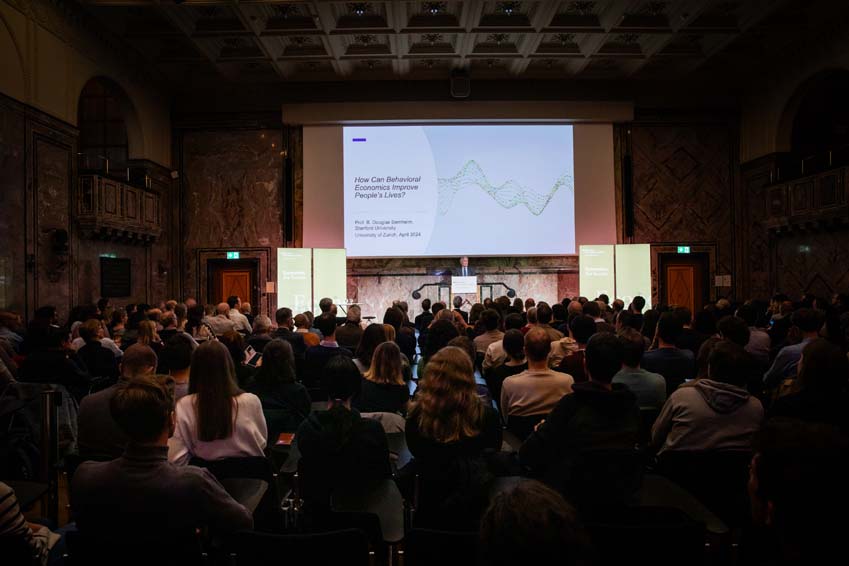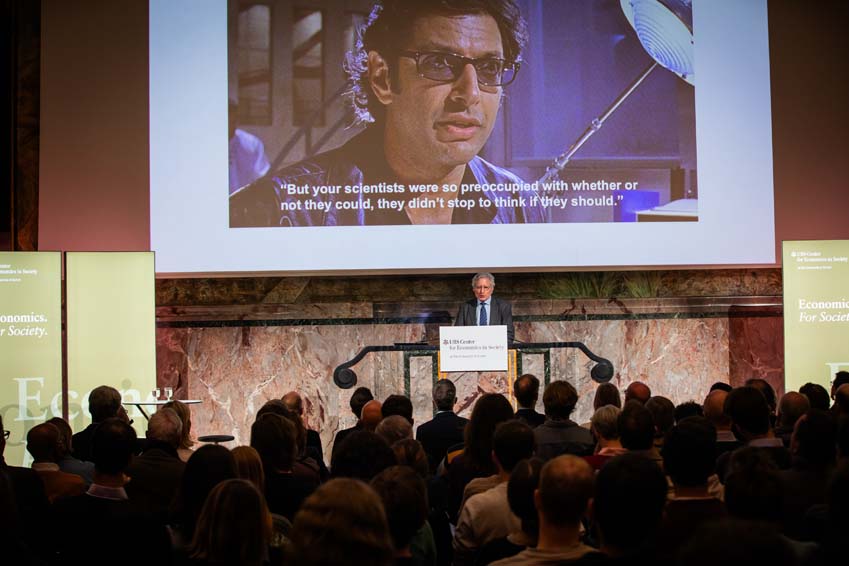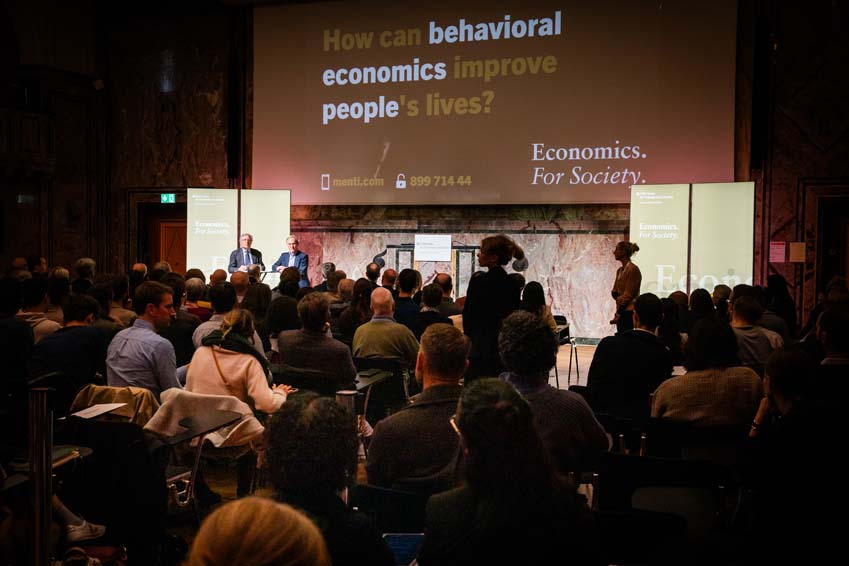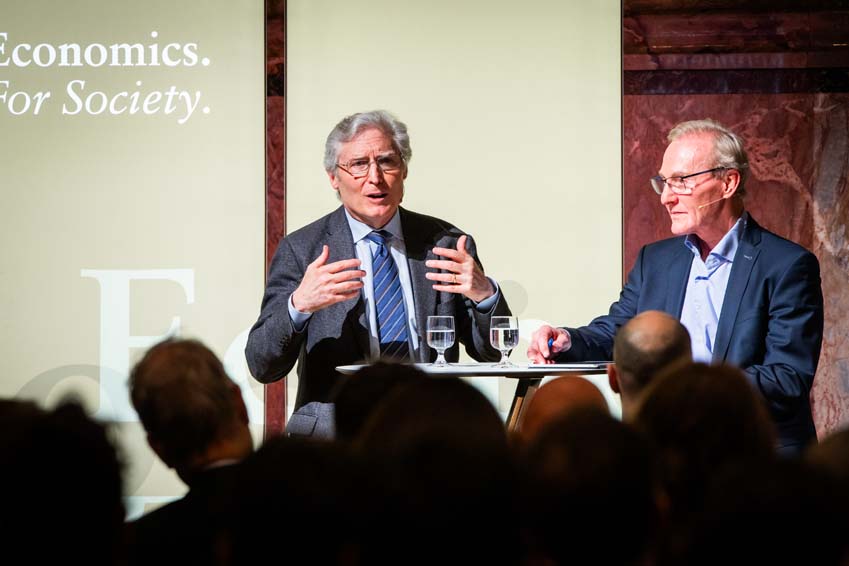How can behavioral economics improve people's lives?
Livestream
Enhancing our lives
Behavioral economics has the potential to play a pivotal role in enhancing our lives. Indeed, insights from this field can empower individuals to make informed choices in various aspects of life. From financial decisions to health and beyond, there are multiple practical applications of behavioral economics that contribute to personal well-being. Join us for an enlightening discussion on how understanding our cognitive biases can lead to improved decision-making and ultimately contribute to a better, more fulfilling life.
Behavioral economics has the potential to play a pivotal role in enhancing our lives. Indeed, insights from this field can empower individuals to make informed choices in various aspects of life. From financial decisions to health and beyond, there are multiple practical applications of behavioral economics that contribute to personal well-being. Join us for an enlightening discussion on how understanding our cognitive biases can lead to improved decision-making and ultimately contribute to a better, more fulfilling life.
Gallery








Speaker
B. Douglas Bernheim is Edward Ames Edmonds Professor of Economics at Stanford University. With a focus on Public Economics and Behavioral Economics, he has made significant contributions to the field through his research and publications. Professor Bernheim is a Research Associate of the National Bureau of Economic Research and a Senior Fellow of the Stanford Institute for Economic Policy Research. He has also held various prestigious positions in the past, including serving as the Director of the Stanford Institute for Economic Policy Research. Bernheim’s work has been recognized with numerous awards and honors, highlighting his expertise and impact in the field of economics.
Ernst Fehr promovierte 1986 an der Universität Wien. Seine Arbeit hat gezeigt, wie soziale Motive die Zusammenarbeit, Verhandlungen und Koordination zwischen Akteuren beeinflussen und wie sich dies auf das Funktionieren von Anreizen, Märkten und Organisationen auswirkt. Seine Arbeit identifiziert wichtige Bedingungen, unter denen die Zusammenarbeit floriert und zusammenbricht. Die Arbeit an den psychologischen Grundlagen von Anreizen informiert uns über die Vorzüge und Grenzen finanzieller Anreize für die Vergütung von Mitarbeitern. In anderen Arbeiten hat er die Bedeutung der Unternehmenskultur für die Leistung von Unternehmen gezeigt. In neueren Arbeiten zeigt er, wie sich soziale Motive darauf auswirken, wie Menschen über Fragen im Zusammenhang mit der Umverteilung von Einkommen abstimmen und wie Unterschiede in der inneren Geduld der Menschen mit der Ungleichheit des Wohlstands zusammenhängen. Seine Arbeit hat innerhalb und außerhalb der Wissenschaft mit mehr als 100.000 Zitaten von Google Scholar große Resonanz gefunden, und seine Arbeit wurde mehrfach in internationalen und nationalen Zeitungen erwähnt.
B. Douglas Bernheim is Edward Ames Edmonds Professor of Economics at Stanford University. With a focus on Public Economics and Behavioral Economics, he has made significant contributions to the field through his research and publications. Professor Bernheim is a Research Associate of the National Bureau of Economic Research and a Senior Fellow of the Stanford Institute for Economic Policy Research. He has also held various prestigious positions in the past, including serving as the Director of the Stanford Institute for Economic Policy Research. Bernheim’s work has been recognized with numerous awards and honors, highlighting his expertise and impact in the field of economics.
Ernst Fehr promovierte 1986 an der Universität Wien. Seine Arbeit hat gezeigt, wie soziale Motive die Zusammenarbeit, Verhandlungen und Koordination zwischen Akteuren beeinflussen und wie sich dies auf das Funktionieren von Anreizen, Märkten und Organisationen auswirkt. Seine Arbeit identifiziert wichtige Bedingungen, unter denen die Zusammenarbeit floriert und zusammenbricht. Die Arbeit an den psychologischen Grundlagen von Anreizen informiert uns über die Vorzüge und Grenzen finanzieller Anreize für die Vergütung von Mitarbeitern. In anderen Arbeiten hat er die Bedeutung der Unternehmenskultur für die Leistung von Unternehmen gezeigt. In neueren Arbeiten zeigt er, wie sich soziale Motive darauf auswirken, wie Menschen über Fragen im Zusammenhang mit der Umverteilung von Einkommen abstimmen und wie Unterschiede in der inneren Geduld der Menschen mit der Ungleichheit des Wohlstands zusammenhängen. Seine Arbeit hat innerhalb und außerhalb der Wissenschaft mit mehr als 100.000 Zitaten von Google Scholar große Resonanz gefunden, und seine Arbeit wurde mehrfach in internationalen und nationalen Zeitungen erwähnt.